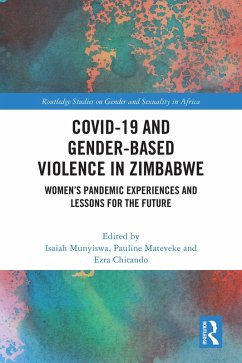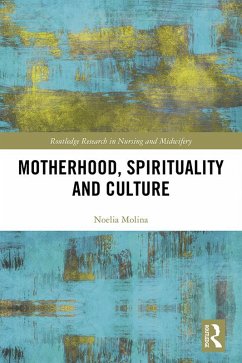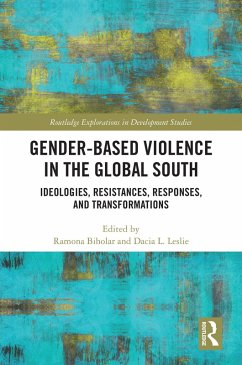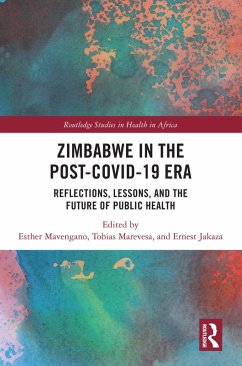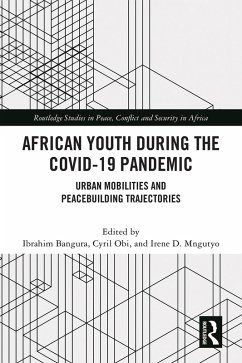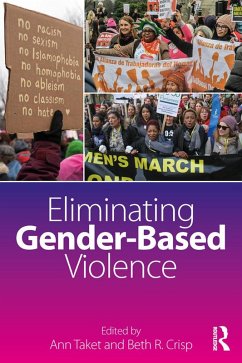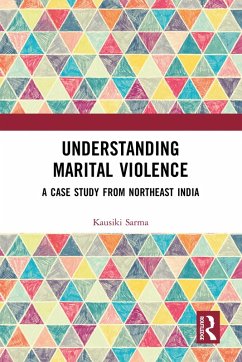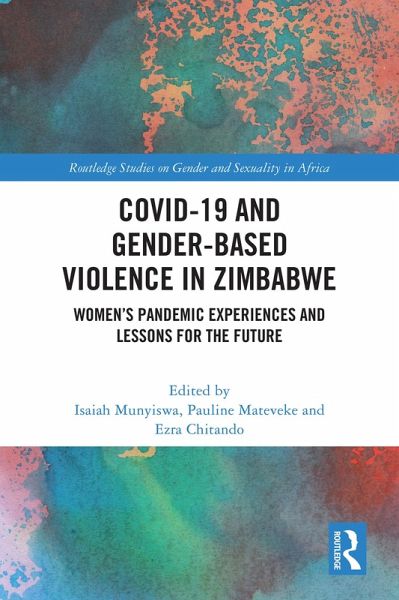
COVID-19 and Gender-Based Violence in Zimbabwe (eBook, PDF)
Women's Pandemic Experiences and Lessons for the Future
Redaktion: Munyiswa, Isaiah; Chitando, Ezra; Mateveke, Pauline
Versandkostenfrei!
Sofort per Download lieferbar
42,95 €
inkl. MwSt.
Weitere Ausgaben:

PAYBACK Punkte
21 °P sammeln!
This book investigates the experiences of women in Zimbabwe facing COVID-19 and gender-based violence, arguing that the insights from this extremely tough period could be used as a springboard for positive legal, cultural and policy changes. In 2020, COVID-19 caught the world by surprise, and often the socio-cultural factors impacting the treatment and care of those infected by the virus were not fully considered. In Zimbabwe, the socially constructed role of women as caregivers left them particularly vulnerable. Not only this, but COVID-19 lockdowns coincided with particularly high levels of ...
This book investigates the experiences of women in Zimbabwe facing COVID-19 and gender-based violence, arguing that the insights from this extremely tough period could be used as a springboard for positive legal, cultural and policy changes.
In 2020, COVID-19 caught the world by surprise, and often the socio-cultural factors impacting the treatment and care of those infected by the virus were not fully considered. In Zimbabwe, the socially constructed role of women as caregivers left them particularly vulnerable. Not only this, but COVID-19 lockdowns coincided with particularly high levels of sexual exploitation and gender-based violence, with women again comprising the majority of victims. Authors in this book analyse the pandemic experiences of women in Zimbabwe, both in the workplace or in the home, with the hope of fostering positive cultural change, and sensitising policy-makers to the need for legislation that protects women in moments of disasters.
The important lessons and discussion points raised by this book will be important to policymakers both within Zimbabwe and beyond, and to researchers working on gender, public health, philosophy, sociology, and politics in Africa.
In 2020, COVID-19 caught the world by surprise, and often the socio-cultural factors impacting the treatment and care of those infected by the virus were not fully considered. In Zimbabwe, the socially constructed role of women as caregivers left them particularly vulnerable. Not only this, but COVID-19 lockdowns coincided with particularly high levels of sexual exploitation and gender-based violence, with women again comprising the majority of victims. Authors in this book analyse the pandemic experiences of women in Zimbabwe, both in the workplace or in the home, with the hope of fostering positive cultural change, and sensitising policy-makers to the need for legislation that protects women in moments of disasters.
The important lessons and discussion points raised by this book will be important to policymakers both within Zimbabwe and beyond, and to researchers working on gender, public health, philosophy, sociology, and politics in Africa.
Dieser Download kann aus rechtlichen Gründen nur mit Rechnungsadresse in A, B, BG, CY, CZ, D, DK, EW, E, FIN, F, GR, HR, H, IRL, I, LT, L, LR, M, NL, PL, P, R, S, SLO, SK ausgeliefert werden.




